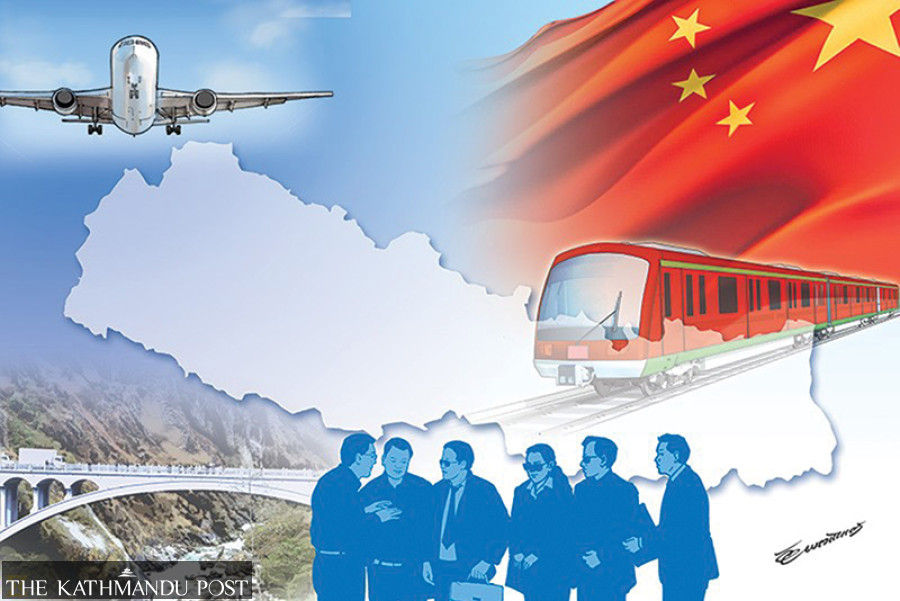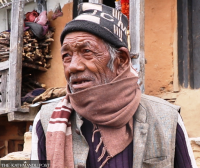National
Nepal yet to decide its delegation to Belt and Road Forum
Physical Infrastructure Minister Prakash Jwala and National Planning Commission Vice-chair Min Bahadur Shrestha are likely to participate but there’s no official confirmation.
Anil Giri
United Nations Secretary General Antonio Guterres, who is arriving in Kathmandu on October 13 on a four-day official visit, will be flying to Beijing on October 16 to participate in the third Belt and Road Forum for International Cooperation (BRF).
China has also invited the Nepal government to the BRF event, but Kathmandu has yet to decide who will participate in the event.
China is hosting the third edition of the BRF conference on October 17–18 in Beijing.
Without giving details, Chinese Foreign Ministry spokesperson Wang Wenbin earlier said: “China is in communication with all parties concerned on the preparation for the forum. Relevant information will be released in due course.” Marking the BRI’s 10th anniversary, the event is also an important platform for all partners to plan the connectivity cooperation, he added.
Nepal and China signed the framework agreement of the Belt and Road Initiative in 2017, but both sides are still struggling to sign the implementation plan, which is crucial for agreeing on the project funding modalities.
The Chinese Embassy in Kathmandu has recently shared a draft joint declaration titled “Initiative for Deepening Cooperation on Connectivity” of the upcoming event and sought comments from Nepali officials.
The second BRF, held in Beijing in 2019, saw the participation of then President Bidya Devi Bhandari. The outcome document of the second BRF had included Trans-Himalayan Multi-dimensional Connectivity Network (THMCN), which is referred to as part of Belt and Road Initiative in the outcome document.
“I have no idea who is going to represent Nepal at the event this year,” said Haribol Gajurel, chief political adviser to Prime Minister Pushpa Kamal Dahal.
As line ministers, Energy Minister Shakti Basnet and Minister for Physical Infrastructure and Transport Prakash Jwala have been invited, but the latter is likely to participate in the forum, according to a government source.
National Planning Commission Vice-chairman Min Bahadur Shrestha, whom Prime Minister Dahal has entrusted with finalising the text of the BRI implementation plan, is likely to accompany Minister Jwala, the source said.
If the government deems higher-level participation necessary, Deputy Prime Minister and Minister for Home Affairs Narayankaji Shrestha could attend the event. Shrestha, however, told the Post that no decision has been made yet.
According to a secretary at the prime minister’s office, Dahal is unlikely to attend the event unless Beijing has a big announcement to make with regard to Nepal.
“The President's office has not received any invitation or request from the government side to attend the BRF,” Suresh Chalise, the principal personal secretary to the President, told the Post.
Nepal and China are in talks to sign the BRI implementation plan. Several rounds of discussions and correspondence have taken place.
During the recent visit of Prime Minister Dahal to China, the two sides, acknowledging the signing of the MoU between the Government of Nepal and the Government of the People’s Republic of China on bilateral cooperation under the framework of the Belt and Road Initiative on 12 May 2017, expressed their commitment to accelerating the consultations to finalise the text on the BRI Implementation Plan at an early date.
The two countries have agreed to strengthen connectivity in the areas of ports, roads, railways, airways and grids, jointly build the Trans-Himalayan Multi-Dimensional Connectivity Network, work to ensure the safety of the cooperation projects and company personnel, and help in Nepal’s graduation from a Least Developed Country as soon as possible.
Chinese Ambassador to Nepal Chen Song has claimed that “a series of fruitful results” has been achieved since the two countries inked the BRI memorandum of understanding in 2017. “There was more policy alignment, improved exchange mechanisms for trade and economic issues, and streamlined connectivity programmes that formed up a web of multi-dimensional connectivity networks in such areas as ports, roads, railways, airways and telecommunications,” Ambassador Chen Song told China’s Global Times in an interview published on Thursday.
Chen further said that trade at border ports has been facilitated to recover to pre-pandemic levels. “The Chinese side supports the Nepali side to participate in major platforms such as the China International Import Expo, China-South Asia Expo and Xizang Tourism and Culture Expo to facilitate the export of Nepali products to China,” the ambassador said. “WeChat payment’s functioning in Nepal this year further facilitated Chinese tourists and cross-border trade. There will also be more direct international flights and expanded medical aid to Nepal and cooperation in providing healthcare and medical services.”




 10.12°C Kathmandu
10.12°C Kathmandu













